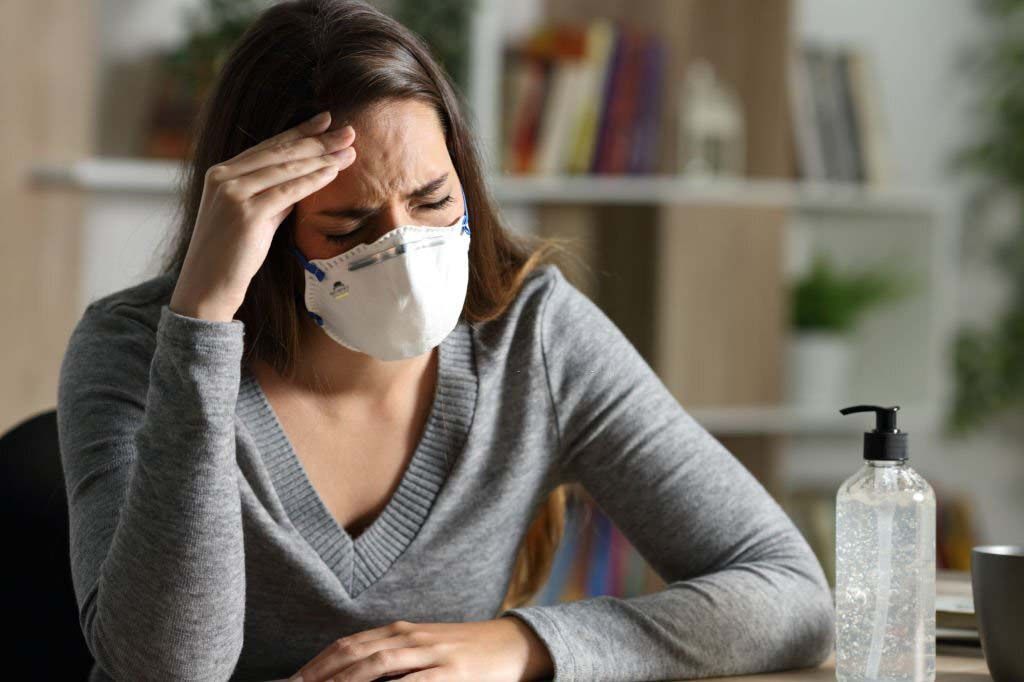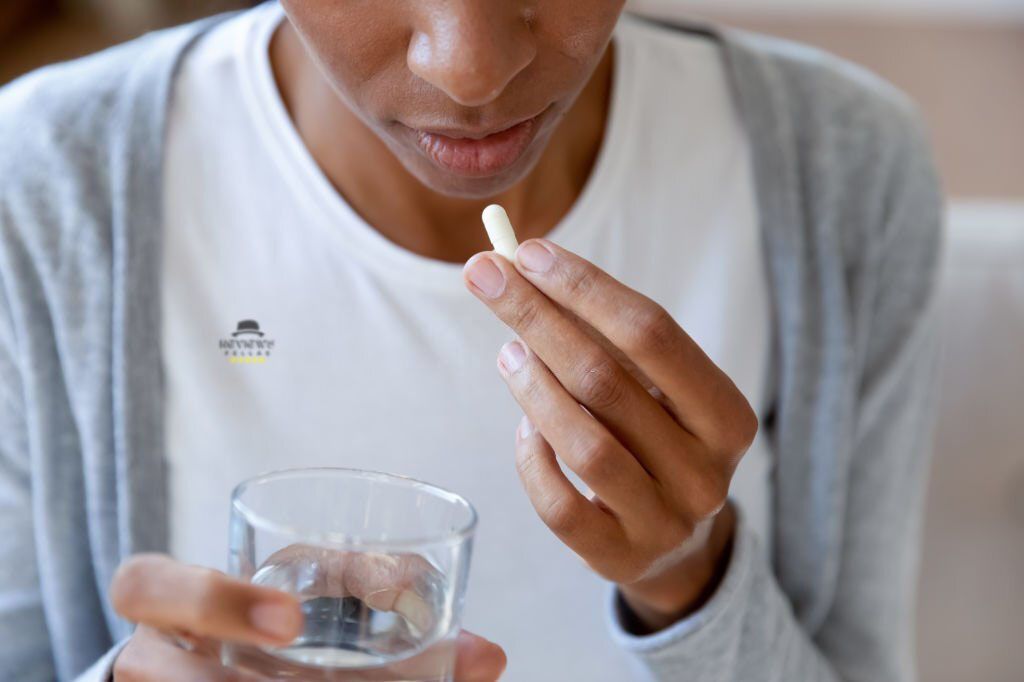This article is reviewed, corrected, and approved by: Julia Weiss CNP| RN | MPH
If you or your child experience a sore throat, difficulty swallowing, swollen tonsils, and other symptoms, it could be due to strep throat, which is caused by a bacterial infection.
This is most common in children, but also adults are infected by it. Also, it can be easily treated with antibiotics, especially when diagnosed early. The virus can be passed from person to person through the air we breathe out. Doctors can check if you have the virus by gently swabbing the back of your throat.
I will demonstrate the causes of sore throat and strep throat, which are caused by viruses and bacteria. So that you can protect yourself and your family. And we will see how long strep throat last and how to cure them fast.
What are the Symptoms of Strep Throat?

If you have strep throat, you'll usually feel a sudden soreness in your throat that makes it hard to swallow. Your tonsils might also become swollen, and you could develop a fever or headache and possibly see white patches or spots on your throat and tonsils.
Here are the common symptoms of strep throat-
- Sore throat: Deep throat soreness, pain, and discomfort are common with strep throat. The throat may feel scratchy, tender, or raw.
- Difficulty swallowing: Swallowing may become painful and uncomfortable due to the inflamed throat.
- Red and swollen tonsils: Symptoms include redness and swelling of the tonsils. There may also be spots of pus or white or yellow patches on them.
- Fever: Strep throat is often accompanied by a high body temperature. Fever can range from mild to severe, typically above 101°F (38.3°C).
- Headache: Streptococcus can cause mild to severe headaches in some individuals.
- Swollen lymph nodes: Tender and enlarged lymph nodes may develop in the neck. Under the skin, these lumps or bumps can be felt.
- Fatigue: Feeling tired, weak, or exhausted is common with strep throat. The infection can drain energy levels.
- Loss of appetite: Many individuals with strep throat experience a reduced desire to eat or drink.
- Nausea or vomiting: Although both nausea and vomiting are rare, some people may experience them.
- Rash: Scarlet fever is a rash that can occur in some cases of strep throat. The rash is characterized by a red appearance and may cover the body, including the chest, abdomen, and extremities.
How Long Does Strep Throat Last?
The duration of strep throat can vary, but on average, it typically lasts for about 3 to 7 days without treatment. Symptoms of infection may improve on their own, but medical intervention, like antibiotics, is needed to prevent them from persisting or worsening.
Antibiotics can significantly reduce the duration of strep throat. Take the full course as prescribed, even if symptoms improve before completing the medication.
Here is the duration of strep throat with and without treatment:
It's important to note that even with treatment, some people may experience lingering symptoms, such as a cough or fatigue, for a few weeks. In addition to taking antibiotics, there are self-care practices that can aid in the recovery process and promote faster healing.
A doctor should be consulted if you or your child are suspected of having strep throat. Rheumatic fever can result if left untreated with antibiotics if strep throat is not treated.
Viral vs Bacterial Sore Throat
In general, individuals don’t have any idea about how strep throat or sore throat occurs. It’s important to understand and know the difference between a viral and bacterial sore throat.
The effects of throat infections vary, and by understanding these dissimilarities, individuals can determine how long does strep throat last and opt for the most suitable treatment, considering the disparity in treatments for each infection.
Below are the difference between a viral and bacterial sore throat
Home Care and Remedies of Strep Throat

In addition to medical treatment, there are a number of home care measures and remedies that can help alleviate symptoms and support the recovery process for strep throat. Here are some home care tips to consider:
Medical treatment
Strep throat is treated with antibiotics prescribed by an experienced physician. Complete the full course of medication even if symptoms improve before finishing. antibiotics kill bacteria, reducing symptoms.
Symptom management
Use pain relievers like ibuprofen or acetaminophen and gargle with warm salt water to ease strep throat symptoms. Throat drops can also provide temporary relief. Follow healthcare professionals' guidelines for safe and effective management.
Rest and hydration
Rest is key for healing from strep throat. Adequate sleep and hydration help the immune system function optimally. Avoid caffeine and alcohol.
Good hygiene practices
Good hygiene prevents strep throat spread. Cover your mouth and nose at the time of coughing or sneezing; you can use tissues or elbows.
Follow-up care
After finishing antibiotics, see a doctor if to get worse. Attend follow-up appointments and share any concerns or symptom changes.
Time for recovery
Strep throat normally clears up on its own in 3-7 days. Antibiotics can speed up recovery, but recovery time varies based on factors like overall health and adherence to treatment.
Frequently Asked Questions (F.A.Qs)
Q: How do you get a sore throat?
Ans: People get a sore throat from a virus or bacterial effect or ever from allergies.
Q: Can spicy food cause sore throat?
Ans: Yes, it does. Spicy foods can cause or worsen a sore throat due to capsaicin irritating the throat's mucous membranes.
Q: Can you have strep throat without fever?
Ans: Strep throat can occur without a fever. It's caused by Group A Streptococcus bacteria.
Q: Why does my throat hurt on one side?
Ans: If you are experiencing throat pain on one side, there could be several possible causes. Some potential reasons for a one-sided sore throat include Tonsillitis, Peritonsillar abscess, Strep throat, Tonsil stones, Pharyngitis, GERD, Muscle strain, or injury.
The Bottom Line
It is an undeniable reality that every person experiences the unpleasant sensation of a sore throat at some point in their life. To treat a sore throat, doctors determine if it's caused by strep bacteria. A sample can be taken, or a quick test can be done.
Antibiotics are prescribed for bacterial infections but won't help if it's caused by a virus. Good hygiene, handwashing, and avoiding contact with sick people can stop the spread of throat infections. Most viral sore throats, including strep throat, can be treated with self-care and symptom relief such as rest, hydration, pain relievers, and soothing remedies.


